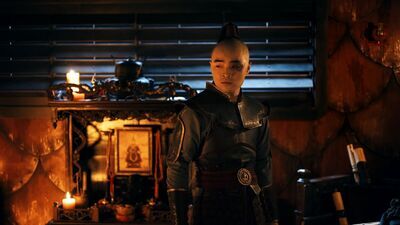The foundational story of redemption through sacrifice is a very culturally Christian idea. It is also one of the most common depictions of redemption in media. The MCU loves this trope (it happens to Loki at least twice!). Some who emphasize the fact that survivors don’t have to forgive also favor this version of redemption arcs because it allows the character to begin to make amends without the people they hurt having to live with them afterwards.
In “Lord of the Rings,” Boromir tries to take the ring, causing Frodo to flee and abandon the fellowship. Immediately afterward, Boromir sacrifices himself protecting Merry and Pippin. He is thereafter spoken of sympathetically through the rest of the series, and by most audiences, too. He redeems his mistake through self-sacrifice, and is posthumously remembered as a hero.
When fighting his sister Princess Azula, Zuko intercepts a lightning bolt meant for Katara, risking his own death to save her. Though he ultimately survives, he came very close to losing his life to save the heroes. Even before then, he gives up his life of privilege, his repaired relationship with his abusive father, his culturally restored honor, even his girlfriend, to go do the right thing, and risks losing his life many times over in the process.

Redemption as Retribution
Some think that in order for an antagonist to be redeemed, they need to suffer. Characters are often criticized for being welcomed to the protagonist’s side without sufficiently suffering first. This is a punitive philosophy that focuses on punishing wrongdoers through figurative or literal pain—a modern eye-for-an-eye view of justice.
There is an in-universe version of this in the “Babylon 5” episode “Passing Through Gethsemane”—a serial killer was punished with “death of personality,” having all of his memories and his entire personality erased and replaced with a new one, whereupon he becomes a monk. The relatives of the people he killed decide he hasn’t suffered enough to earn this redemption, and torture him.
Zuko has been suffering since before we first meet him, and he suffers plenty more along the way. Even when he seemingly gets everything he wanted, it is hollow and leaves him unfulfilled. The first time we see him truly happy is after he has joined the heroes. One reason the audience is so sympathetic to Zuko is that we’ve seen how much he’s been suffering. One reason the Gaang takes longer to warm up to him is that they haven’t seen what we the audience have.

